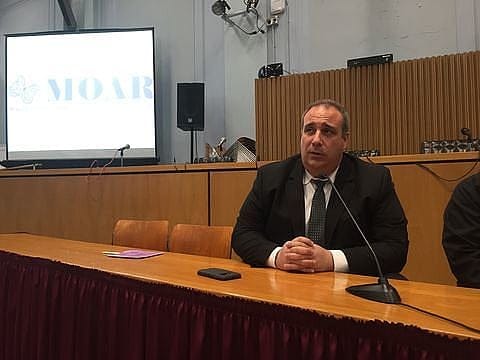Opioid crisis confounds efforts to rein in deadly results

BOSTON – Professionals on the front lines of fighting the opioid epidemic offered advice to lawmakers Monday about how to tackle drug abuse and addiction as frustration began to show among some legislators with the lack of action.
Rep. Randy Hunt, an East Sandwich Republican and member of the Mental Health and Substance Abuse Committee, told his fellow committee members he'd like to see a "huge effort" to pull together legislation that could be sent to Gov. Charlie Baker's desk before the Legislature recesses for the year in just over two weeks.

